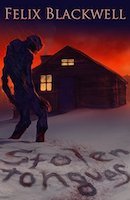Review: His Bloody Project
/3 stars. I struggle with where to fall with this one, because it's so clearly a well-written, well-researched, thoughtful piece of work indicative of a very intelligent, talented author. I couldn't put it down, for what it's worth, and I absolutely adore epistolary novels, so I found that aspect really engaging and fun. But I think ultimately it wasn't a home run for me because, to be very frank, I was expecting a last-minute twist, so I spent my whole reading experience anticipating that and looking for clues.
His Bloody Project "collects" various documents related to a murder that occurred in rural Scotland in the late 1800s. Included are witness statements, a transcript of the trial as well as the murderer's confession and account of the crime. We as readers learn through these documents about the events leading up to the murders, the history of the town, the victims and the manner with which justice is sought.
I recommend it as long as you go in knowing: this is not a mystery, or a thriller, or even a why-dunnit. It's a piece of historical fiction that offers an incredibly detailed, thorough image of a time and place. And it's an examination of a "true" crime through an almost academic legal lens. It's essentially a long Wikipedia article, and if this sort of thing interests you, you will love it. If you are looking for a more traditional crime thriller, or as I mentioned before - a twist, you should stay away.
Also, I have some questions!! Multiple interesting considerations were only hinted at or barely examined, when they could have lent additional depth to this. Many other reviewers have noticed that these are clever hints implying a darker conspiracy at work, and I'll continue to think about that - maybe even re-read a few passages. The "villain" was a little cartoonish and I didn't totally buy the main character's path from A to B to Murder - do these play into the bigger picture? Hmmmmmmm.
Anyway, I can't not mention the bigger themes: oppression, suppression, repression, prejudice, religious fervor, access in isolation, tradition, justice, psychology, sociopathy, duty and honor and obligation, the definition of "civilized," the purpose of law, the futility of law, the faults of law, I could go on and on. It's good stuff, it really is. I have no regrets and I'm glad I read it. GREAT title, too.
His Bloody Project on: Amazon | Bookshop.org | Goodreads










